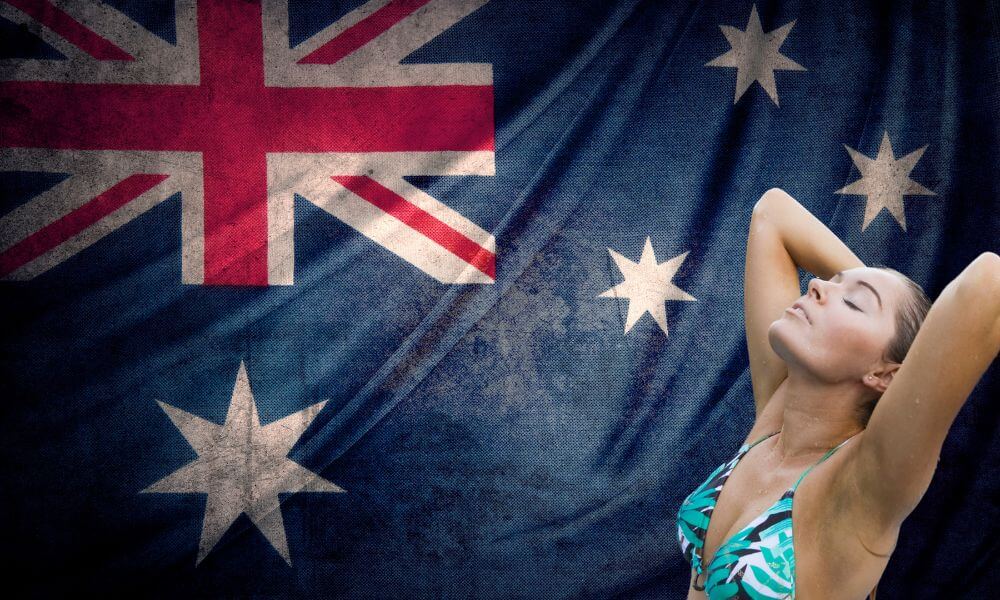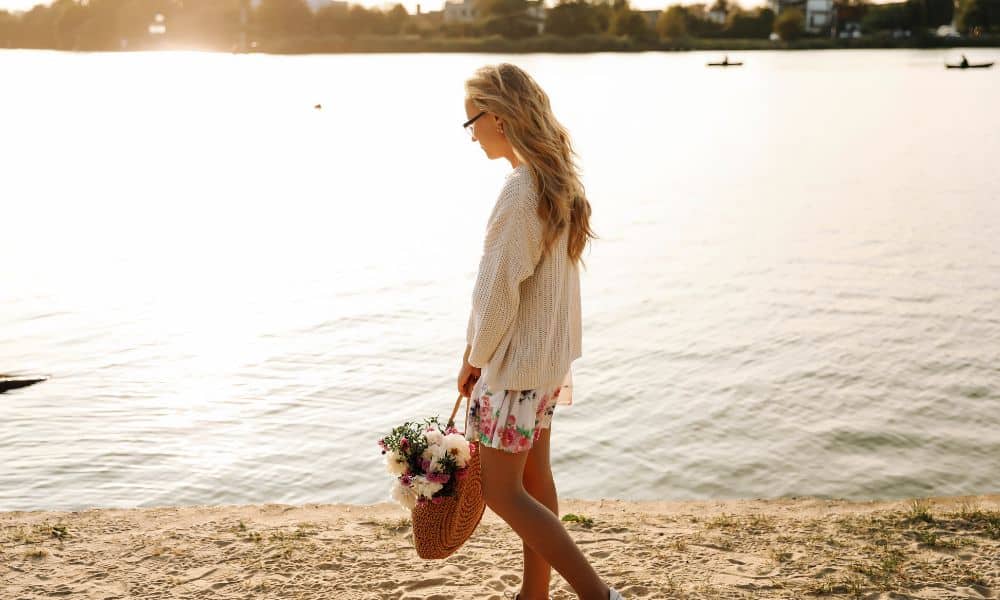Slang terms for women and girls are, for one reason or another, often far more numerous than slang terms for men.
Over the decades and the centuries, separate English-speaking nations have come up with dozens of different slang terms for women, some less respectful than others!
Today, we’re going to look at some examples of Australian slang for girls—where the terms come from, how they might be used, and whether or not you should use it if you want to stay on someone’s good side!
Let’s get started.

Australian Slang For Girl
Sheila
Let’s start with the most common, most well-known, and most quintessentially Australian slang term for girls: Sheila.
While everywhere else in the English-speaking world, Sheila is a specific person’s name, in Australia it can be used to refer to any woman or girl.
Of course, it is still used as a name in Australia, too.
Our oldest recorded use of the term, in Australian English, comes from way back in 1832, where it was spelled Shelah.
Originally, it referred to a woman of Irish origin.
As with the United States in this period, there was a large-scale migration of the Irish to Australia due to a variety of factors.
From the late 19th Century, it began to be used as a general term for any woman.
There was also a tradition called Shelah’s Day, celebrated immediately after St. Patrick’s Day, which doubtless helped to popularize the use of Sheila.
Today, it’s perhaps not in fashion to the degree it once was, but it is still extremely common to hear women and girls in Australia called Sheila.
Chick

Most of you will likely recognize this one instantly as an Americanism.
You’ll probably also recognize that, today, chick is really considered a derogatory term.
I wouldn’t use it to describe someone you didn’t know, and even then, only if you’re sure they are comfortable with it!
Our first recorded use of the term comes from the 1927 novel, Elmer Gantry, where a character complains they do not want to marry this “brainless little chick”.
This passage is ideal, as it displays perfectly the most probable origin of the slang.
It is considered derogatory because it was used to describe women as stupid, lacking responsibility, being airheaded, and “brainless”—like a newborn chick, i.e., a chicken or other young bird.
It most likely entered the Australian lexicon via Hollywood movies of the mid-twentieth century.
Bird

Following on from that, a more up-to-date term more widely used today than chick is bird.
Women, typically younger women and often someone’s girlfriend, are ‘birds.’
This one is most certainly a borrowed slang term from British English and is used in both countries today.
Bird has long been used to describe girls in English, as far back as the 1300s.
However, that is largely due to confusion with the archaic term ‘burde,’ meaning young woman.
The oldest recorded use of the modern slang ‘bird’ is from 1915, and it is found slightly later in the century in Australia.
Again, my advice would be that this one can be seen as derogatory, so you should probably avoid using it!
Slag
If there’s one slang term you ought to be aware of to avoid an awkward situation, it’s slag.
Make no mistake that this is an outright insult, one which anyone you aren’t familiar and able to joke around with will certainly take as such.
It can actually have a couple of slang meanings in Australian, too.
One the one hand it can just mean a particularly promiscuous girl, and it can also be a verb, as in “She was slagging me off”.
This version of the term has its origins back in the 1970s, fairly recently in linguistic terms.
In the 18th Century, the term was meant to simply mean a worthless person, or someone deeply objectionable by the moral standards of the time.
Naturally, that included sexually liberated women, and so over time it came to be used more specifically to refer to women who did not adhere to the morals of the period.
Today it is broadly used by both men and women in Australia to describe promiscuous women and sometimes men, whether in a genuinely insulting way or a playful way.
Rag
Following on from that, ‘rag’ is essentially another term used to describe promiscuous women.
Again, make no mistake that this is an insult, if you couldn’t tell just by the word itself.
This one is more uniquely Australian, and its origin isn’t really clear, although it seems likely it was a simple distortion of slag over time.
Tart
Finally, we have a slightly ambiguous term which, in some cases, might be taken as an insult.
Again, this one is used in more places than Australia—in the UK, it’s another term for someone with many sexual partners.
However, in Australia, it’s often simply used to refer to someone’s girlfriend. “He’s out with his tart,” for example.
But it can also mean any woman.
Again, though, I would exercise caution with this one, as it could still be taken in the wrong way.
Broad
If you’re American or British, you might be surprised to hear the term ‘broad’ used to describe women and girls in Australia.
It’s certainly more than gone out of fashion where it originated in the US.
Like many other terms, it seems to have entered Australian use in the middle of the last century as Hollywood took its hold on the world.
The precise origin of this term is far from clear.
There are many stories about its origin.
Some suggest it originates in ‘broad’ being a certain playing card, which then went on to mean a woman of “loose morals”.
However, others contest it was connotative of broad hips, beginning in use in this way around 1911.
It could also be a reference to the term ‘abroadwife’, meaning a woman away from her husband.
It could even have been a distortion of the archaic English term “bawds,” meaning prostitute.
Unfortunately, we don’t know for sure where this term originated. But it is still in use today in Australia.
Babe
Finally, we have “babe”, which in Australian slang can be a more general term for a girl.
Whereas in the US, “babe” is generally a pet name between romantic partners, in Australia while it can be this too, but it is also a broader way of talking about a female, possibly a female friend.
So, this is not one to use to refer to someone you don’t know.
But it’s still certainly at its broadest definition in Australian slang, where it isn’t confined within relationships as it often is elsewhere.
Foreign Lingo Poll
There’s a lot of borrowing and sharing between nations and languages, then, for the slang terms for girl.
Australian English has a lot of its own unique slang terms, though, for sure, and most instantly recognize Sheila as an Aussie slang term for girl.
But there are many more that you also wouldn’t hear anywhere else.
More in Australian Slang
- Australian Slang For Afternoon
- Australian Slang For Alcohol
- Australian Slang For Ambulance
- Australian Slang For Americans
- Australian Slang For Awesome
- Australian Slang For Barbecue
- Australian Slang For Beautiful
- Australian Slang For Beer
- Australian Slang For Boyfriend
- Australian Slang For Breakfast
- Australian Slang For Carpenter
- Australian Slang For Chocolate
- Australian Slang For Christmas
- Australian Slang For Cigarette
- Australian Slang For Clothes
- Australian Slang For Crocodile
- Australian Slang For Dad
- Australian Slang For Dinner
- Australian Slang For Dog
- Australian Slang For Drunk
- Australian Slang For Excited
- Australian Slang For Flip-Flops
- Australian Slang For Friend
- Australian Slang For Gas Station
- Australian Slang For Girl
- Australian Slang For Girlfriend
- Australian Slang For Goodbye
- Australian Slang For Hello
- Australian Slang For Kangaroo
- Australian Slang For Lazy
- Australian Slang For Liquor Store
- Australian Slang For Lucky
- Australian Slang For Man
- Australian Slang For Plumber
- Australian Slang For Police
- Australian Slang For Quilt
- Australian Slang For Redneck
- Australian Slang For Sandwich
- Australian Slang For Sausage
- Australian Slang For Swimsuit
- Australian Slang For Thank You
- Australian Slang For Toilet
- Australian Slang For Wine
- Australian Slang For Yes
- Australian Slang Quiz

